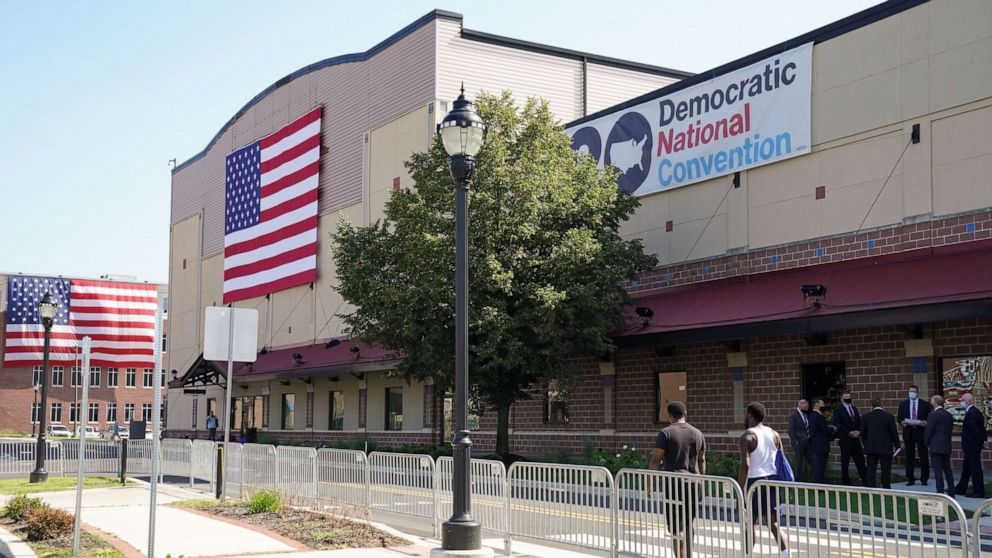5 key takeaways from 1st night of Democratic National Convention
The first virtual convention opened on Monday night with a gathering (of sorts) featuring a diverse roster of Democratic Party loyalists, members of the old guard, ascending stars, former 2020 contenders and even some Republicans.
Over four days, Democrats are set to deliver an overriding message of unity -- one that they hope will carry through to November and bring voters of all stripes into the big tent party.
Dominating the night, which is framed around the three major crises that continue to grip the nation ahead of the 2020 election -- the coronavirus pandemic, the ongoing economic downturn the virus has sparked and the national reckoning over racial injustice -- is the party's push to contrast President Donald Trump and presumptive nominee Joe Biden.
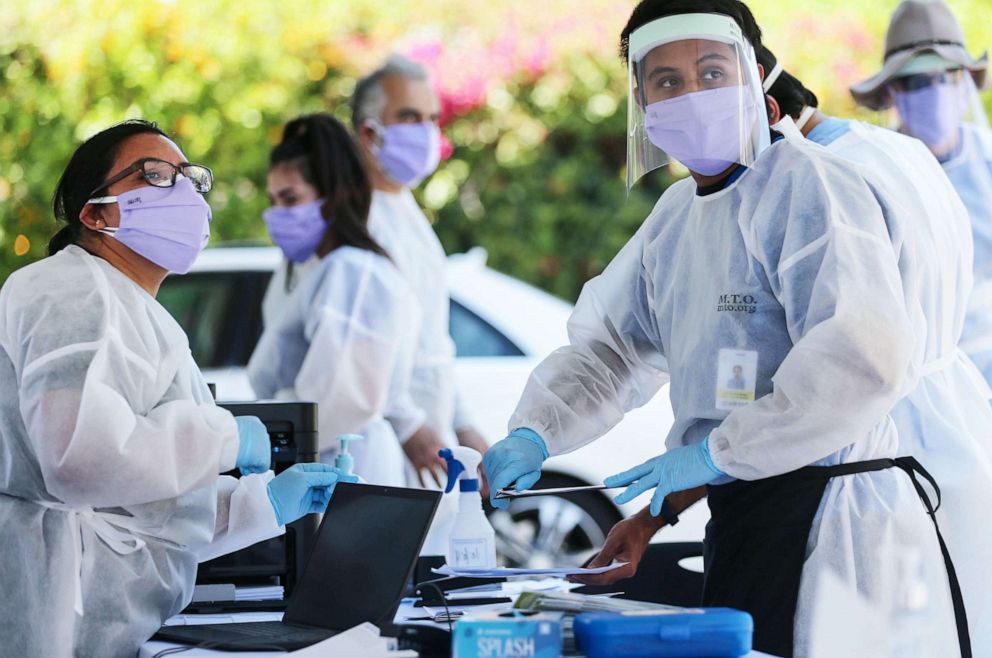
Biden, the speakers consistently argued, is the only one who can lead the country out of chaos and divisiveness.
This year's festivities are a sharp departure from conventions of the past, which are historically daunting productions planned years in advance and known for raucous crowds of party loyalists packed inside a convention hall. But the coronavirus pandemic has dramatically minimized the nominating celebration's footprint in Milwaukee -- with major programming taking place remotely across the country.
The convention's climax comes on Thursday, when Biden officially accepts the party's nomination at his 12th convention, marking the start of the general election season. On Wednesday, the party is set to make history, nominating the first Black person and first woman of Indian descent as a vice presidential candidate: Sen. Kamala Harris, D-Calif.
Here are 5 takeaways from the night:
Joe Biden, the healer
At the heart of Biden's campaign to oust Trump is a call to restore the soul of the country, and it was the thematic thread connecting every speech, taped video and montage at the first night of the convention.
House Majority Whip Jim Clyburn, D-S.C., whose endorsement in late February helped propel Biden to the nomination, called Biden "an adopted son of South Carolina," arguing that the differences between Biden and Trump could not be more clear.
"We will need a president who sees unifying people as a requirement of the job, a president who understands the true meaning of community and how to build it through trust and humility," Clyburn said. "We need a president who understands both profound loss, and what it takes to bounce back.That's why I stand with Joe."
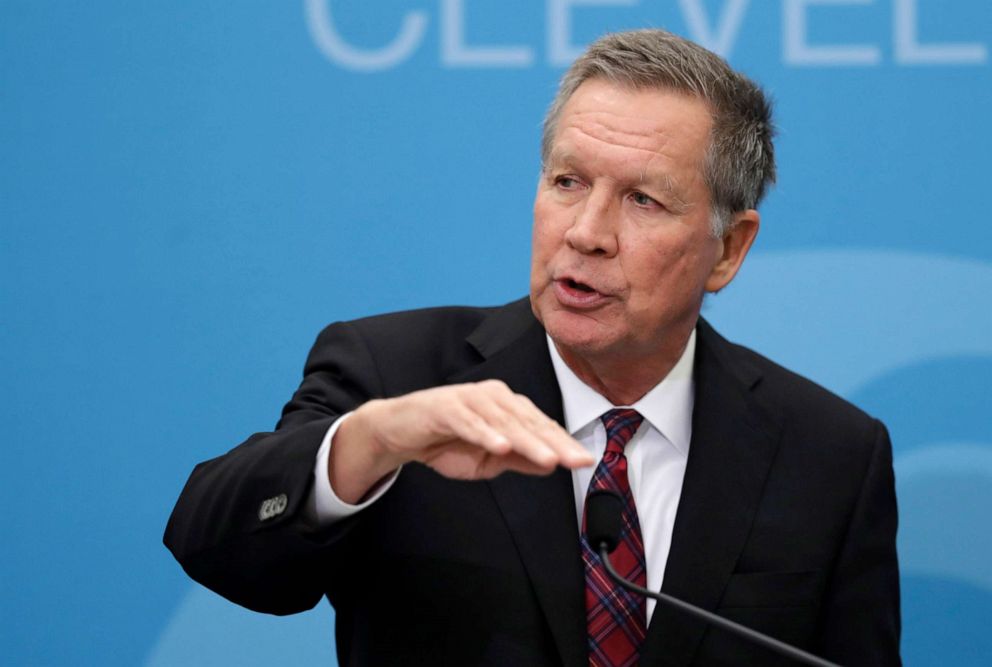
Another longtime friend of Biden, New York Gov. Andrew Cuomo, delivered both a personal appeal for Biden's candidacy and an implicit, blistering critique of Trump.
"We need a leader as good as our people. A leader who appeals to the best within us, not the worst. A leader who can unify, not divide," Cuomo said. "I know that man, I've worked with that man. I've seen his talent. I've seen his strength. I've seen his pain and I've seen his heart... Joe Biden can restore the soul of America, and that's exactly what our country needs today."
Night 1 focuses on coalition's flanks
Beyond the virtual format, the convention balanced an ideological labyrinth, embracing the progressive wing of the party and Republicans disillusioned by the president.
The focus of the night wasn't entirely on the party's base, but instead on the flanks that could broaden the coalition Biden is seeking to build.
Sen. Bernie Sanders, D-Vt., the progressive stalwart and last of the 2020 candidates to exit the race, cited the progress his insurgent movement has made, suggesting that the priorities that once seemed radical only years ago, are now considered "mainstream." He also turned to all the reasons why his loyal backers must line up behind Biden, telling his base that while he and Biden are very different, he knows the former vice president "will move us forward."
"Joe supports raising the minimum wage to $15 an hour," Sanders said. "Joe will also make it easier for workers to join unions, create 12 weeks of paid family leave, fund universal pre-K for 3 and 4-year-olds and make child care affordable for millions of families... While Joe and I disagree on the best path to get universal coverage, he has a plan that will greatly expand health care and cut the costs of prescription drugs."
Sanders also underscored the stakes of the election.
"Nero fiddled while Rome burned. Trump golfs," he said, a sharp jab at the president. "We must come together, defeat Donald Trump, and elect Joe Biden and Kamala Harris as our next president and vice president. My friends, the price of failure is just too great to imagine."
And Sanders wasn't alone.
Former Ohio Gov. John Kasich, who ran for the Republican nomination against Trump in 2016, had one of the more controversial speeches of the night with his presence roiling some on the left, and brought one of the most unique pitches for Biden to voters on the fence.
Kasich, who crossed party lines to appear at the Democratic convention, was not alone in his stance, but he was the most high-profile Republican speakers, and reflected the breadth of Biden's efforts in courting voters.
"I'm sure there are Republicans and independents who couldn't imagine crossing over to support a Democrat," Kasich said. "They fear Joe may turn sharp left and leave them behind. I don't believe that because I know the measure of the man. It's reasonable, faithful, respectful, and, you know, no one pushes Joe around."
Michelle Obama steps off sidelines, into political spotlight
Former first lady Michelle Obama, who has strayed away from outright shows of politics, took aim at Trump by name, wrapping the first night of Democratic programming with a 20-minute speech to rally voters.
In speaking to Americans and potential voters, Obama said she understands the distaste many across the country have for politics, but that a "moral foundation" is missing from the White House.
"I am here tonight because I love this country with all my heart, and it pains me to see so many people hurting," she said. "Barack and I have tried our best to instill in our girls a strong moral foundation to carry forward the values that our parents and grandparents poured into us. But right now, kids in this country are seeing what happens when we stop requiring empathy of one another. They're looking around wondering if we've been lying to them this whole time about who we are and what we truly value."
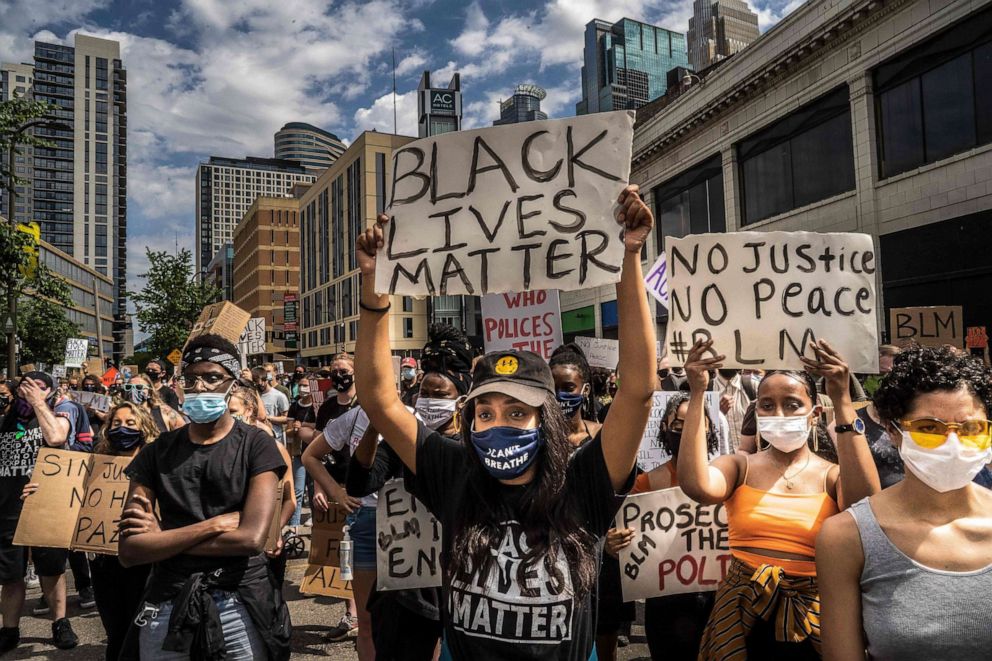
Obama's focus in the lead up to the election centered around voter engagement and registration-- while quietly denouncing and subtly the president and his time in the Oval Office. Monday night she chose a more direct path, highlighting what she sees as failures by the president: an economy in shambles, the hundreds of thousands of Americans who have died from the coronavirus pandemic and racial inequity which has plagued the nation for years.
"Because whenever we look to this White House for some leadership or consolation or any semblance of steadiness, what we get instead is chaos, division, and a total and utter lack of empathy," she said. "So let me be as honest and clear as I possibly can. Donald Trump is the wrong president for our country. He has had more than enough time to prove that he can do the job, but he is clearly in over his head. He cannot meet this moment. He simply cannot be who we need him to be for us. It is what it is."
She wrapped up her speech with a key phrase spoken by those who endorsed Biden: "I know Joe. He is a profoundly decent man, guided by faith. He was a terrific vice president. He knows what it takes to rescue an economy, beat back a pandemic, and lead our country -- and he listens. He will tell the truth and trust science. He will make smart plans and manage a good team and he will govern as someone who's lived a life that the rest of us can recognize."
An eye on November
Democrats sought to highlight Americans affected by Trump's presidency as part of their effort to leverage the convention to recruit swing voters ahead of the general election.
Between speeches from political mainstays throughout the Democratic party, everyday workers were given an opportunity to speak on their experiences throughout the last three-and-a-half years of the Trump presidency -- including the last few months of the coronavirus pandemic -- and underscore why they are now getting behind Biden.
The DNC tapped Kristin Urquiza, who lost her father earlier this summer to COVID-19.
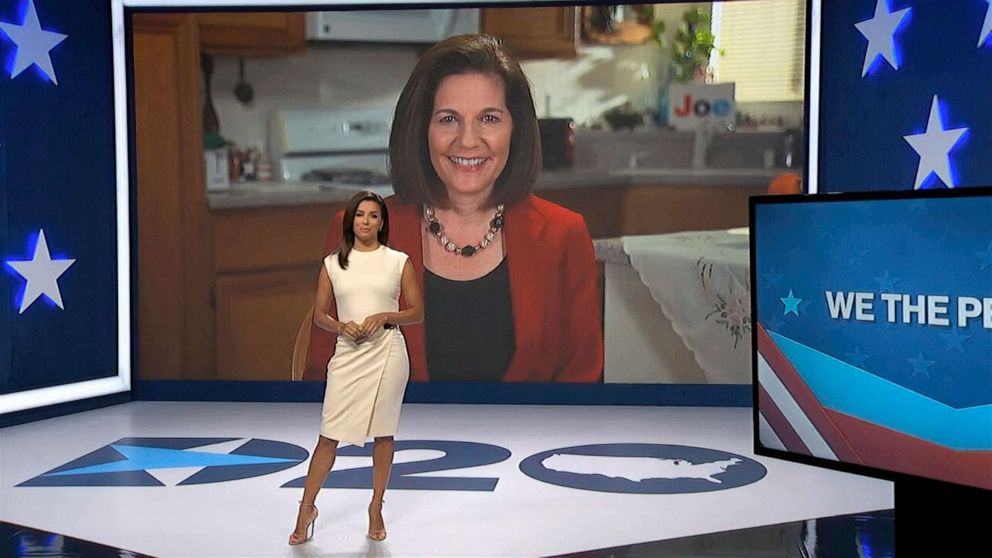
"He had faith in Donald Trump. He voted for him, listened to him, believed him and his mouthpieces when they said that coronavirus was under control and going to disappear, that it was okay to end social distancing rules before it was safe, that if you had no underlying health conditions, you'd probably be fine," she said of her father, who passed away at age 65.
"After five agonizing days he died alone, in the ICU, with a nurse holding his hand. My dad was a healthy 65-year-old. His only preexisting condition was trusting Donald Trump, and for that he paid with his life. I am not alone," she added.
Democrats test the virtual format
As the convention found its rhythm throughout the night, the event was not without adjustments and slight technical challenges as the organizers interspersed live speeches and taped pieces.
Some live speakers began slightly too early, some of the segments featured blurred videos, but nevertheless, the party persisted through it all.
For most of the night, the convention's organizers were juggling hundreds of feeds, broadcasting live videos from living rooms, rooftops, stages and balconies across the nation.
The first night of speakers, some of which were in real time, were also mixed in with pre-recorded remarks and montages featuring frontline workers, small business owners and an array of voters.
"Hey, everybody, how are you? Thanks for doing this," Biden told social justice activist Jamira Burley, Chicago Mayor Lori Lightfoot, Houston Police Chief Art Acevedo, NAACP President Derrick Johnson, and author Gwen Carr, mother of Eric Garner, who all appeared on separate screens during a pre-recorded discussion on racial injustice - a scene that underscored just how much has changed for this year's convention.
This report was featured in the Tuesday, Aug. 18, 2020, episode of “Start Here,” ABC News’ daily news podcast.
"Start Here" offers a straightforward look at the day's top stories in 20 minutes. Listen for free every weekday on Apple Podcasts, Google Podcasts, Spotify, the ABC News app or wherever you get your podcasts.
